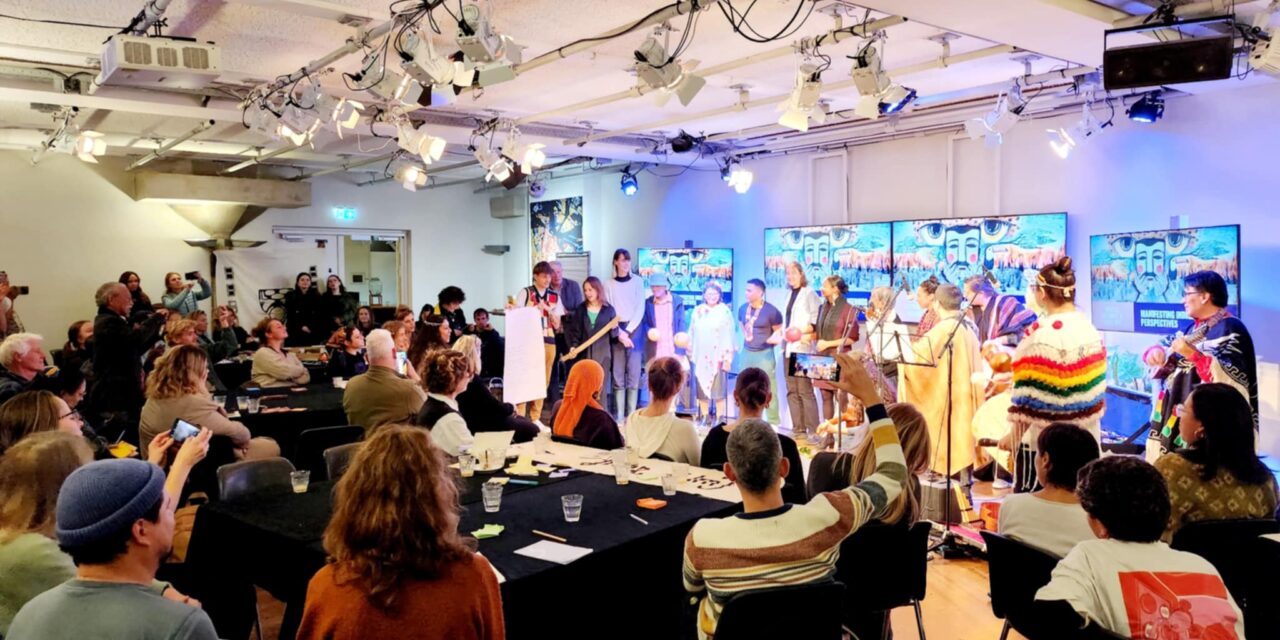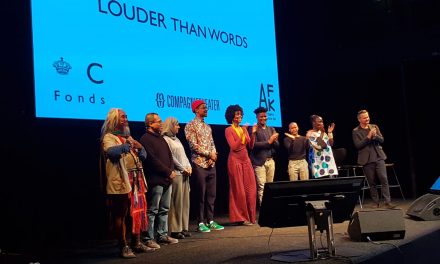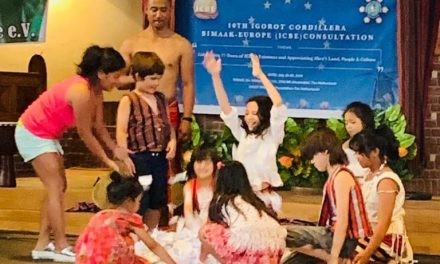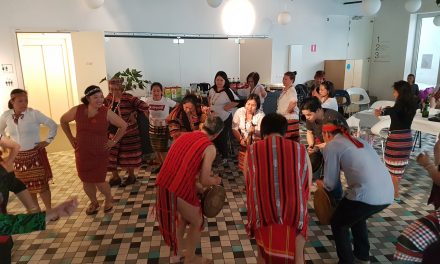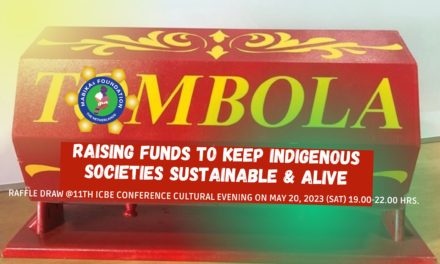Indigenous Round Table Dialogues at Pakhuis de Zwijger Explore Critical Issues Through Indigenous Perspectives
On October 14, 2024, Pakhuis de Zwijger, in collaboration with eight community organizations, including MABIKAs Foundation-The Netherlands, Tribes Movement, NCIV, Mas Newen, Free West Papua Campaign NL, Aralez, IKCN, and Wasjikwa, hosted an important roundtable event titled Manifesting Indigenous Perspectives. The event brought together activists, scholars, and community members to explore pressing global issues through the lens of Indigenous knowledge and rights. Five roundtable discussions were held, each addressing a distinct topic, including indigenous ecocide/genocide, cultural and identity preservation, and self-determination. The other two significant topics of discussions that were led by MABIKAs Board Members Cesar Taguba and Myra Colis were on legal rights/positions of indigenous people and migration & belonging, respectively.
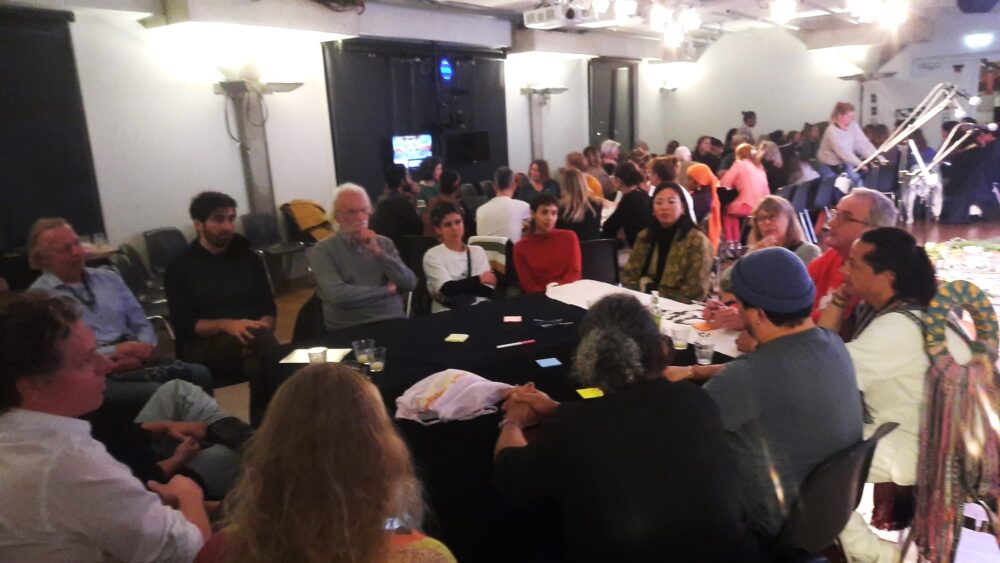
Migration, belonging and living together from indigenous perspectives
In the discussion on ‘migration, belonging and living together from indigenous perspectives’, Myra Colis (MABIKAs Foundation) and Max de Ploeg (Aralez), a strong longing for a sense of community emerged as a central theme. Participants reflected deeply on what it truly means to be a community and how the experience of belonging is shaped by this connection. The conversation highlighted that, in today’s society, the increasing fragmentation of communities is leaving many individuals—especially migrants—feeling isolated and disconnected.
The distinction between migrants and locals was also a key part of the discussion, with participants noting how this divide is reinforced by legal categories that separate people into different groups, such as refugees, labor migrants, or expatriates. These categories often carry negative connotations and create a sense of indifference or exclusion, making it harder for migrants to feel a genuine sense of belonging. The legal labels not only dehumanize individuals but also reinforce societal hierarchies that perpetuate isolation and exclusion.
Amid this widening gap, the participants pointed to the importance of Indigenous values of interconnectedness and reciprocity. These values, deeply embedded in Indigenous cultures, offer a vision of community that is based on mutual care, shared responsibilities, and deep ties to the land and each other. The discussion underscored that reconnecting with these principles could help bridge the divide between people and rebuild that lost sense of community. By embracing interconnectedness—where each person’s well-being is linked to the collective—and reciprocity—the idea of giving back and supporting one another—there is potential to create more inclusive, compassionate communities where everyone, regardless of their migration status, can feel a true sense of belonging.
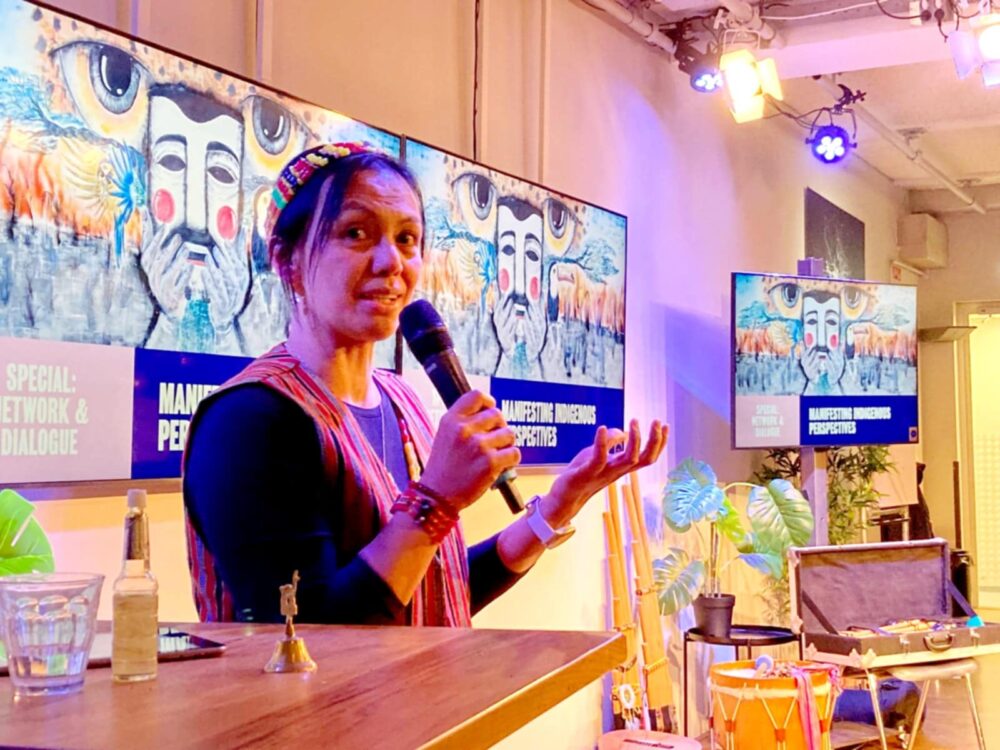
Legal rights and position of Indigenous Peoples worldwide
In the discussion on the legal rights and position of Indigenous Peoples worldwide, facilitated by Leo van der Vlist (NCIV) and Cesar Taguba (MABIKAs Foundation), participants explored how Indigenous peoples are often not recognized in legal systems, affecting their rights as caretakers of Mother Earth and their right to self-determination.
A key case highlighted was the struggle of the Indigenous Igorot people in the Philippines. Despite protections under the Indigenous Peoples’ Rights Act (IPRA) of 1997, the Igorot have long fought to safeguard their ancestral lands from destructive activities such as mining, logging, and dam construction, often backed by state-sanctioned corporate interests. As they assert their rights, the Igorot face significant challenges, including violence, displacement, and the erosion of their traditional ways of life.
This case exemplifies the broader issues faced by Indigenous communities globally, where legal recognition frequently fails to provide effective protections. The discussion underscored the critical importance of free, prior, and informed consent (FPIC) in decision-making processes affecting Indigenous lands. The struggle for self-determination resonates across all Indigenous communities, highlighting the interconnectedness of Indigenous movements worldwide.
The roundtable emphasized that solidarity is essential in defending their rights against exploitation. A just legal system must prioritize Indigenous sovereignty, enabling communities to protect their lands and cultures, ultimately fostering a more equitable future for all.
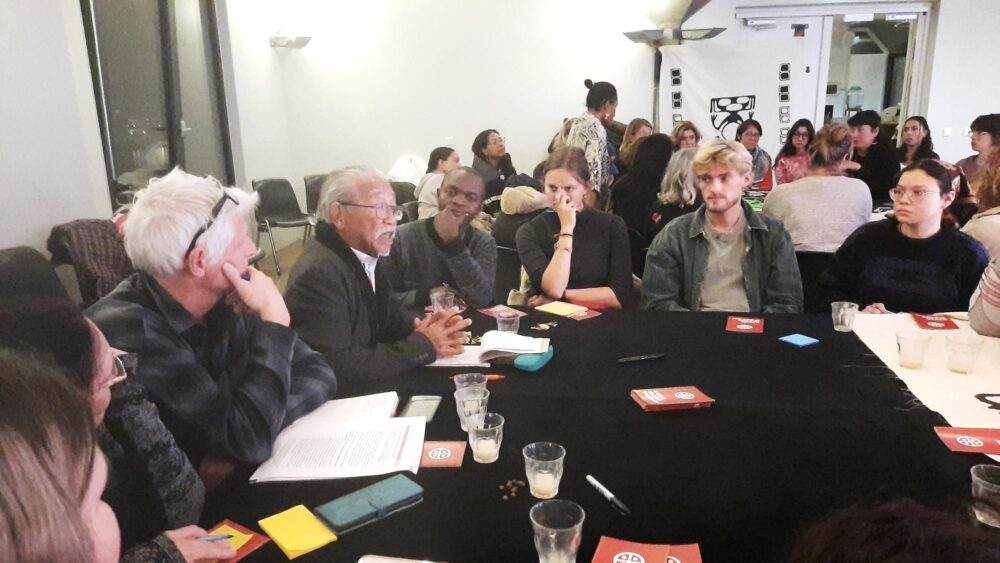
Summary of the rest of the discussion points
Other topics led by Indigenous advocates included discussions on Ending Indigenous Ecocide/Genocide, facilitated by Maria Derey (Free West Papua Campaign NL) and Chihiro Geuzebroek (Aralez & Indigenous Dreams). The discussion focused on understanding ecocide and genocide from an Indigenous viewpoint with emphasis on the roles of the military complex and neo-colonial economic systems in perpetuating environmental and cultural destruction. The discussion emphasized the need for solidarity and reparations to heal the damages caused by colonial and modern-day extractive practices.
Led by Jorge and Juliana (Tribes Movement) and Eduardo Caceres Salgado (Mas Newen), the session centered on Towards Territorial Economies of Care and Self-Determination addressed the extraction of Indigenous lands and resources and its impacts on global markets. Participants advocated for a just trade system that respects ancestral territories and promotes ethical practices to support local communities.
Facilitators Leander Vermaning (Wasjikwa), Jeike Meijer (Aralez), and Victor Bottenbley and Sherlien Sanches (Stichting Inheems Kennis Centrum Internationaal) creatively engaged participants by co-creating a song in just one hour. This song encapsulated the importance of preserving Indigenous languages, cultures, and identities, and was sung using several local languages familiar to the group. The performance served as a powerful conclusion, highlighting how creativity and cultural expression can preserve and revitalize Indigenous traditions.
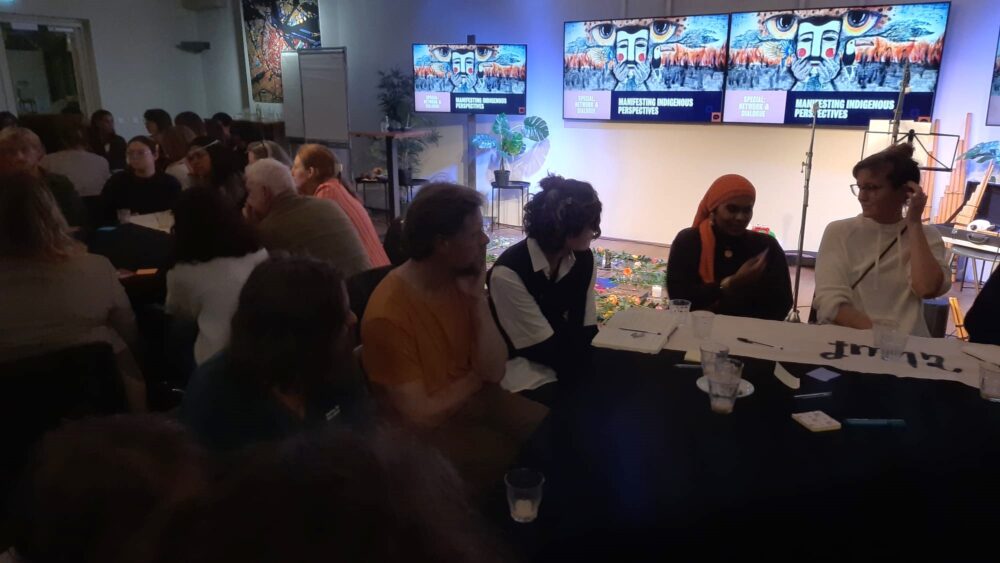
Photo credits: Juliana & Jorge (Tribes Movement)
